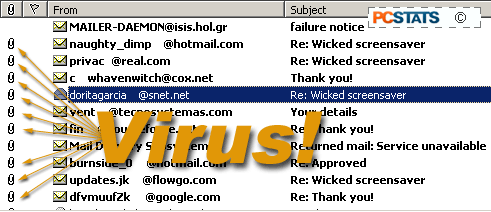Bookmark this PCSTATS
guide for future reference.
When you use the Internet there are dangers around every corner. Viruses, malicious users, Trojan horses, Oh my! If these are just concepts to you, you are either lucky or well protected (or just un-connected). If these names trigger painful flashbacks to when your computer (and possibly your account balance) was rendered inoperable or compromised by one of the above, then join the club.
Either way, securing your computer against threats from the Internet is an
essential step. If you do not, you will, at some point, regret it. Guaranteed.
This article is intended to provide some basic guidelines for securing your computer, and to give the reader a better understanding of how some of these technologies work. It is intended primarily for users of high-speed Internet connections, but most of the article is applicable to dial-up Internet users also.
As far as the home or small business user is concerned,
Internet security can be broken down into three areas; Anti-virus
software, Firewall protection and Recommended practices/Common
sense.
To deal with the last of these three first, an essential step in securing your computer or network is understanding what actions can compromise you. What you don't know will hurt you, especially in regards to email. Some good basic security steps for dealing with email:
Don't use outlook express. I know, it's convenient, and you already know how to use it,
but think about this. Outlook Express is the default email client for every
windows version since 98. How many Millions of people do you think are using the
default email client? Right. Now if you were writing a computer virus that you
wanted to spread rapidly through the Internet by emailing itself, what e-mail
client would you write it for? Exactly. If you want to see for yourself, go to
www.sarc.com and type 'outlook express' in the
search field. There are many alternative email clients available, some of them
free. Try www.eudora.com for starters.

Don't open file attachments unless you are sure
of the source. Email file attachments are one of the most common vectors for computer viruses. Modern antivirus software will scan incoming email as a matter of course, but you still have the possibility of a new virus that has yet to be added to the list of scanned-for viruses.

